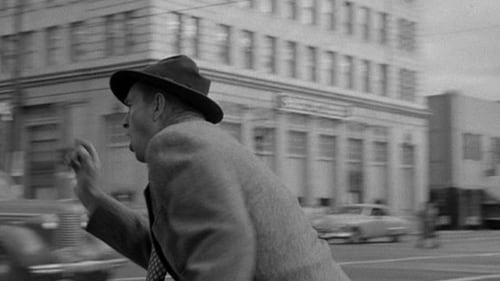
Director
During the early days of the war a young student, Makito (Kazuo Funaki), falls in love with Yuko (Mayumi Ozora), the widow of a naval officer. She, however, is living with the memories of her husband and it is her younger sister, Yumiko (Nana Ozaki), who grows fond of the student. Then, one day, a young naval officer, Tadayuki (Ken Ogata), a friend of her late husband, comes to see the widow and she becomes attracted to him. Though Makito is inspired to study for the navy, he is much upset when he learns that Yuko and Tadayuki are to marry.

Screenplay
Taka, the daughter of Naniwa-ya, a longtime Osaka store owner, married Kichisaburo Kawashima-ya, the son of a kimono wholesaler. Her husband just tried to play with her like a sweet candy, but Taka fell in love with him. One day, the father-in-law suddenly dies, and the Kawashima-ya family fortune is rapidly changing. However, the depravity of Kichisaburo does not subside...

Director
Taka, the daughter of Naniwa-ya, a longtime Osaka store owner, married Kichisaburo Kawashima-ya, the son of a kimono wholesaler. Her husband just tried to play with her like a sweet candy, but Taka fell in love with him. One day, the father-in-law suddenly dies, and the Kawashima-ya family fortune is rapidly changing. However, the depravity of Kichisaburo does not subside...

Director
This movie is based on an immortal literary work "The Snow Country," a story about a life of geisha Komako who lives in a region with heavy snowfalls.

Director
A promising dancer asks her professor to write a libretto for a Nō play. He then introduces her to a student of classical literature, but also a classical theatre student in the hope that the latter will marry Senya..

Screenplay
A promising dancer asks her professor to write a libretto for a Nō play. He then introduces her to a student of classical literature, but also a classical theatre student in the hope that the latter will marry Senya..

Director
Based on the novel of the same name by Seichô Matsumoto.

Director
This period film is inspired by one of the most notorious scandals to have taken place in Edo-period Japan. The heroine, Ejima, was a lady of the Ooku, the harem of Edo Castle in which the Shogun’s mother, wife and concubines resided, forbidden from contact with any other man except in the presence of the Shogun. The institution played a key role in the Byzantine world of Japanese court politics during the Edo era. In 1714, Lady Ejima was sent to pay her respects at a Buddhist temple in the city, and chose to pay an unauthorised visit to the kabuki theatre – a violation of protocol that was to have tragic consequences.

Director
Machiko and Haruki’s drama continues. Machiko is not allowed to see Haruki. They finally meet again, but Haruki departs to Europe.

Director
Machiko and Haruki’s drama continues. Two meet again in Hokkaido only to be separated again.

Director
Machiko Ujiie and Haruki Atomiya first meet and fall in love on Ginza’s Sukiyabashi Bridge during the Great Tokyo Air Raid in March 1945. Machiko and Haruki pledge to meet again at the bridge in six months but part without asking each other’s names.

Director
Motoko Fujikawa works in the Seisen Church as an assistant to pastor Maki Inokichi. Motoko falls in love with Inokichi's virtuous character and devotes herself to the rehabilitation of a delinquent girl, gradually finding her job at the institution more worthwhile than the marriage recommended by her parents. Meanwhile, inside Inokichi's heart a flame of unknowing love for the single-minded Motoko begins to burn...

Director
Inochi uruwashi

Director
"Pure white nights" - A romantic tale that depicts love between married people and the psychology of their marriage with elegant and a controversial touch. Love, art and suffering until the tragic and absurd ending.

Director
kikyou - The Return

Director
The film portrays the experiences of Takashi Nagai as a survivor of the atomic bombing of Nagasaki.

Director
Four unlucky pirates head to a weather tracking station set on a remote island with the intention of holding the weather trackers as hostages and assaulting their next incoming supply ship; but at the station they are told that a serious typhoon is on the way, so the ship will be delayed.

Director
A 1948 Japanese film.

Director

Director
Hana wa itsuwarazu (1941) is the second directorial work by Shochiku's Oba Hideo. Oba had previously worked as an assistant director to Shimizu Hiroshi and penned films for Shimazu Yasujiro. In this early effort, he is not stylistically very far from either, but then again all Shochiku directors resemble each other to a point. The film is an everyday romance for younger audiences, full of clean, ideal human beings.

Director

Screenplay
Shigeo is an aspiring writer living with his girl friend Minako and hoping for success and a better tomorrow every day. Both live on what Minako earns from working in a café. Shigeo is not happy with the situation and neither is his family who do not approve of Minako. Especially his uncle tries to convince him to leave Minako, even using his influence behind the scenes. Things start to change when Shigeo's sister pays the young couple a visit, being the first member of Shigeo's family to actually get to know Minako in person.















